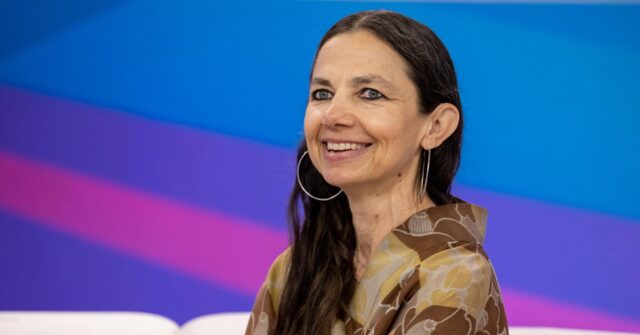Actress and filmmaker Justine Bateman expressed her enthusiasm regarding the recent election of President-elect Donald Trump, viewing it as a liberating moment for advocates of free speech and expression. In an interview with Fox News Digital, Bateman articulated a sense of relief, suggesting that a suffocating atmosphere had previously permeated society. She criticized the last four years under the previous administration as a time when individuals with dissenting opinions faced intimidation, either overtly or subtly, which contributed to a culture of silence around contentious decisions. With Trump’s victory, she believes that this oppressive environment has begun to lift, fostering an openness that encourages individuals to voice their thoughts without fear of repercussion.
Bateman, best known for her role as Mallory Keaton on the popular 1980s sitcom “Family Ties,” gained notable attention for her comments on the past years being “un-American” in terms of free expression. She emphasized that under the previous administration, societal norms were increasingly leaning towards only accepting “permitted positions” on various issues. She passionately declared that everyone should have the freedom to live their own life without encroaching on others’ rights to do the same. This belief in individual liberty stands at the core of her argument, as she underscores the importance of free speech as a foundational principle of American democracy.
The actress has been vocal about her concerns regarding the erosion of free speech, particularly during the Biden administration. She pointed out that the nation, originally grounded in the ideals of free expression, has become restrictive in terms of what ideas are acceptable for public discourse. The New York Post highlighted her critique of the “mob rule” that has emerged on social media platforms, where any form of dissent or varying opinion surrounding pressing societal topics, such as the Israel-Palestine conflict or transgender athletes in sports, has led to a narrow understanding of what positions are deemed acceptable. Bateman stresses that this limited acceptance undermines the broader discourse essential for a healthy democracy.
In reflecting on this climate of fear and surveillance, Bateman likened the societal changes to the dystopian realities portrayed in George Orwell’s “1984.” She lamented the atmosphere of self-surveillance that has taken root where individuals may feel compelled to monitor their own behaviors and opinions to avoid social backlash. Bateman questioned the necessity of living in such a tentative state, where one feels as if they are perpetually testifying or fearing judgment, and called for a return to a more relaxed existence, free from the burdens of constant scrutiny and the pressure to conform.
On November 5, while observing the election results in Washington, DC, Bateman experienced an unexpected physical release as she watched Trump’s supporters rally across the country. She remarked on the surprising wave of relief that washed over her, realizing in that moment how heavy the past few years had felt. The sensation of a “deflating balloon” symbolized her newfound hope for a return to a more liberated state of discussion and expression after years of discomfort and tension.
Ultimately, Bateman’s perspective reflects a broader desire among many for a cultural shift towards greater acceptance of diverse viewpoints and the reclamation of free speech. Her resurgence into the public conversation underscores a collective yearning for a society where individuals can engage openly about their beliefs and opinions without fear of retribution. As her ideas resonate with those who prioritize the principles of freedom and variety in dialogue, it presents an opportunity for re-evaluation of how society approaches contentious subjects in an increasingly polarized environment.

